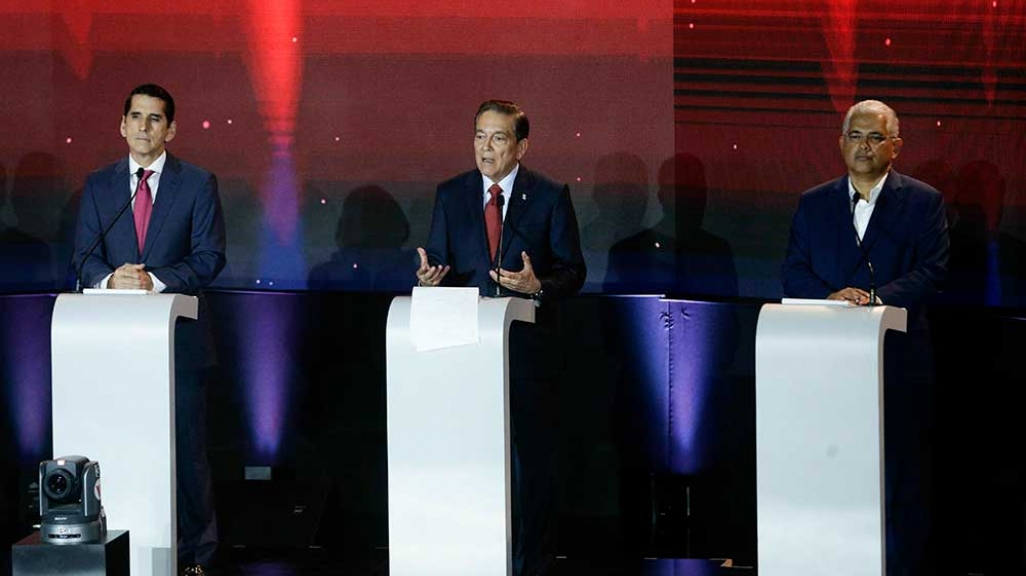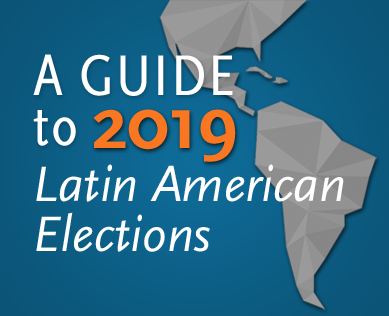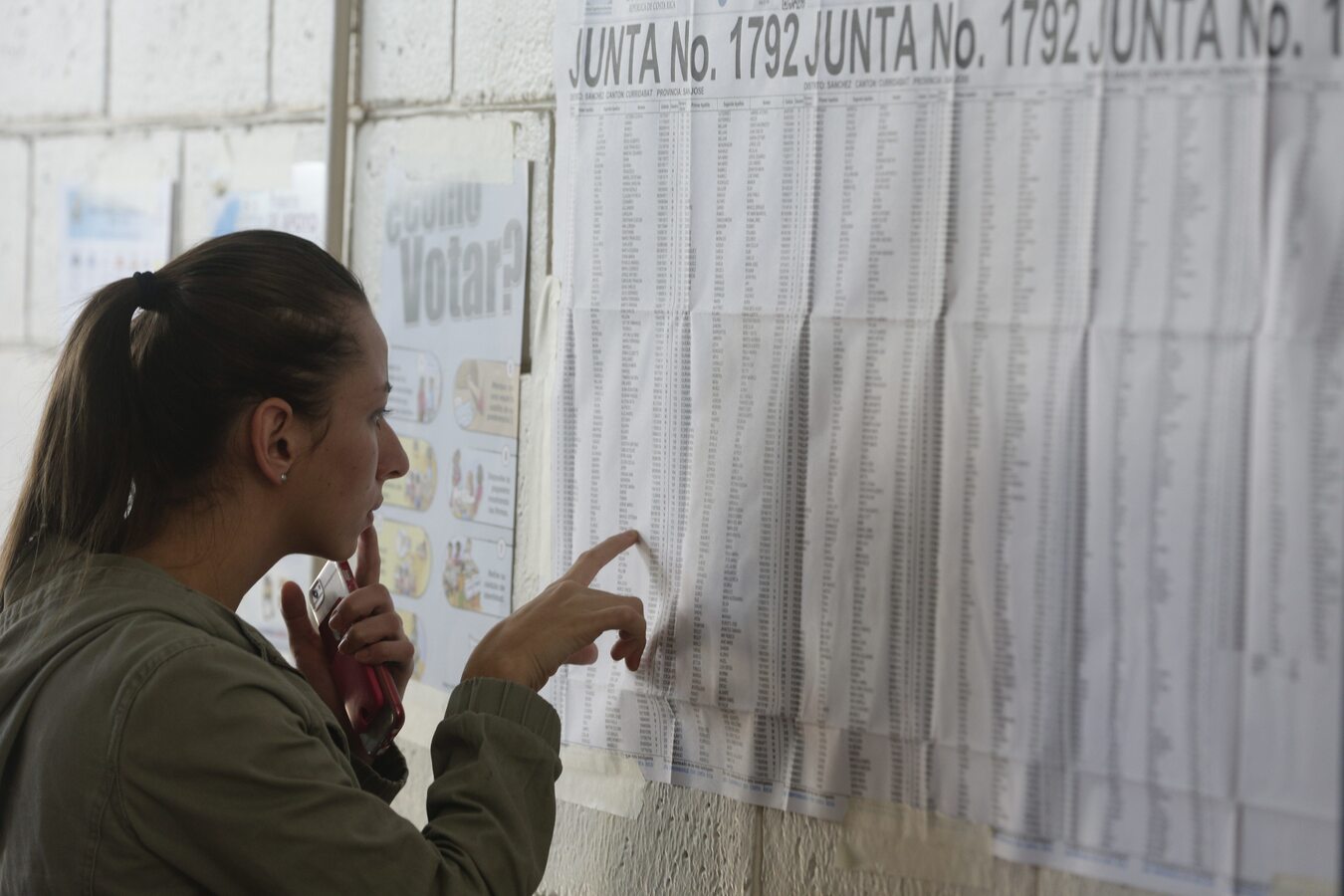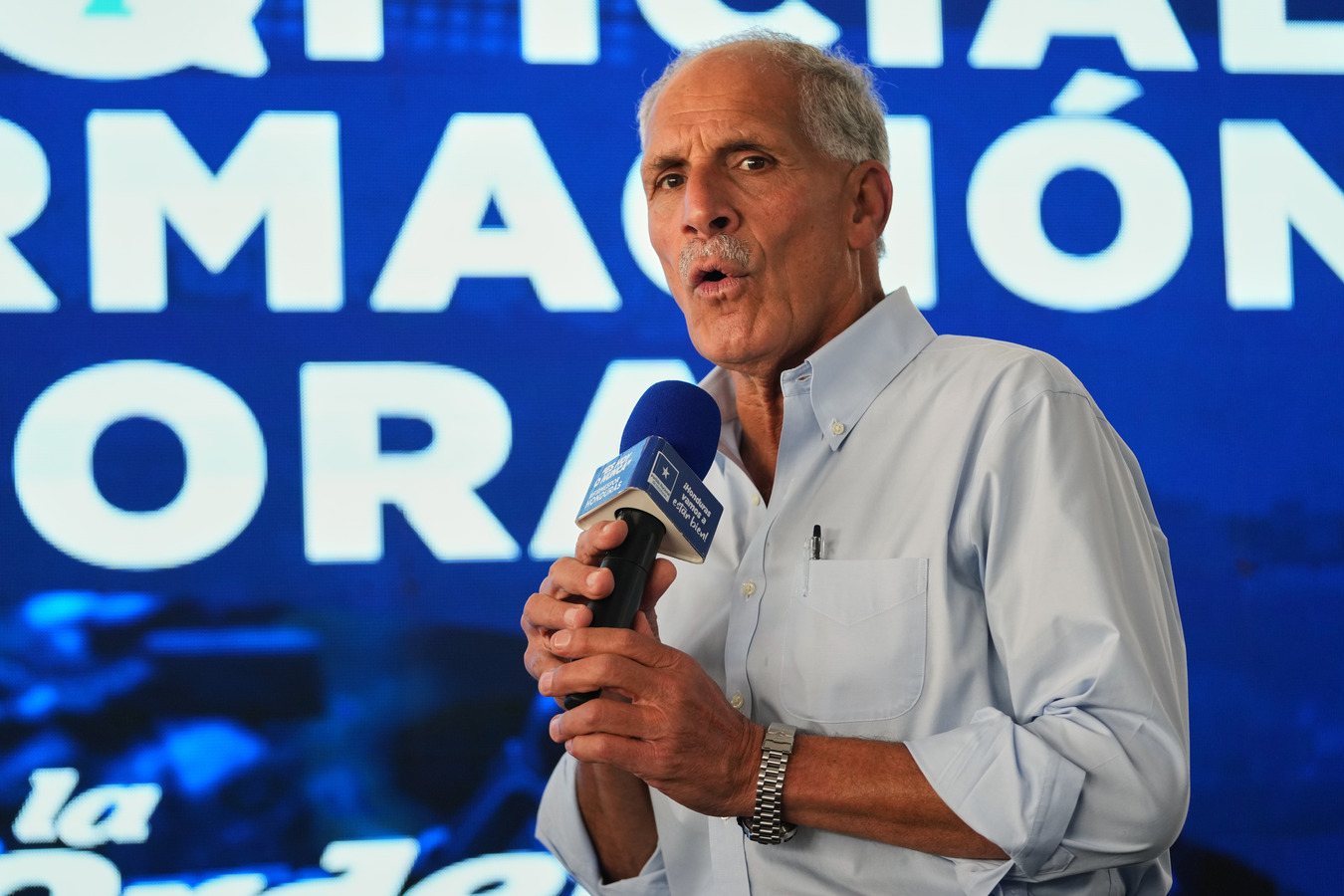Explainer: A Who's Who of Panama's Presidential Candidates
Explainer: A Who's Who of Panama's Presidential Candidates
Learn about the candidates’ positions on everything from constitutional reform to social security to agricultural production.
As in many Latin American countries, support for democracy is on the wane in Panama. With the country preparing to vote May 5—marking the sixth presidential election since the end of the Manuel Noriega dictatorship—just 42 percent of Panamanians back democracy. That’s a far cry from 75 percent that supported it in 1996, and even below the average 48 percent regionwide in 2018, according to Latinobarómetro.
In 2019, corruption is at the top of voters’ concerns, dominating much of the political debate, along with calls for a new Constitution. Six of the seven candidates in the presidential field committed to incorporating anti-corruption measures into their platforms and signed a pact put forward by Transparency International. While independent candidate Saúl Mendez did not sign, he has been vocal in the need to combat corruption and impunity in the country.
Polls show that Panama is poised to most likely return the country’s biggest political machine, the Democratic Revolutionary Party (PRD), to the presidential palace. With the campaign season officially kicking off March 5, we dive into the race’s context and background of the four most competitive presidential aspirants.
But first, the elephant in the room
Along with a president and vice president, Panamanians will also be electing all 71 deputies in its unicameral legislature, 20 seats for the Central American Parliament (Parlacen), 81 mayors, and close to 700 local representatives and councilors.
In the running for both a seat in the National Assembly and as mayor of Panama City is former President Ricardo Martinelli, who has been in jail since June 2018 awaiting trial for corruption and illegal wiretappings during his administration (2009–2014). He is running under the banners of the Democratic Change (CD), the party he founded, and the Alliance Party. In the case that he wins both elections, he will have to choose between the two, ceding one of the posts to a stand-in, which would be Sergio "Chello" Gálvez for mayor or Mayín Correo for the National Assembly. Either would also take his place in the case that Martinelli is convicted. The former president’s trial is scheduled for March 12.
The issues at the heart of the debate
Martinelli, the Panama Papers, and allegations that the current President Juan Carlos Varela received campaign funds from Odebrecht—the Brazilian construction company embroiled in bribery scandals across Latin America—have Panamanians demanding greater transparency from their government. In a 2018 Gallup Panama poll, 30 percent of respondents listed corruption as the top issue in the country. The answer for some civil society groups is a restructuring of the three branches of power through a new Constitution.
Varela’s cabinet submitted a bill to the National Assembly in January proposing to add two consultations to the May 5 ballot, asking the public if they wanted a new Constitution and whether they wanted it drafted by a specially convened constituent assembly parallel to the next Congress. The Electoral Tribunal ruled it was too late to include in the upcoming election and has now become a point of contention for the next administration. Points of reform up for debate include adding a second round to elections, changing how justices are appointed to the Supreme Court, and how deputies are elected.
Citizens also want change on the economic, health, and educational fronts. Panama has been one of the fastest-growing economies in Latin America and the world for years, with GDP expanding an average 6.1 percent a year since 2000. Yet, the World Bank also ranks it among the 10 most unequal countries globally. The government’s own report on multidimensional poverty in 2018 showed 19 percent of the population living in poverty, though the rate is as high as 40 percent in more rural areas like Bocas del Toro and up to 90 percent in indigenous regions. Lack of access to health care and education is among the principle factors, as well the high prices of goods. Import levels doubled in the decade between 2007 and 2017, making Panama a net importer of goods. Many candidates are thus promising to reverse this by buying less from abroad and more from domestic producers in the agricultural sector, which currently accounts for less than 10 percent of GDP.
Finally, like many countries in the region such as Argentina, Brazil, Colombia, and Nicaragua, pension reform is becoming increasingly necessary. Experts project the Caja de Seguro Social (CSS) could run out of funds by 2025, requiring a $25 billion (or 40 percent of GDP) payout from the government.
As for the presidential candidates
Laurentino “Nito” Cortizo
Democratic Revolutionary Party (PRD)
@NitoCortizo
nitocortizo.com
Nito Cortizo, 66, is the standard-bearer of the PRD, the country’s largest party, which has held the presidency for 20 of the last 50 years, including the first democratically elected administration (1994–1999) after Noriega’s ousting. A graduate of the University of Texas at Austin, Cortizo began his career as a businessman in construction and livestock companies and then entered the political field with his election to the National Assembly in 1994. He was the Assembly’s president from 2000 and 2001 and named agricultural minister by President Martín Torrijos in 2004. But Cortizo renounced his ministerial post in 2006 over his disagreement with the free-trade agreement with the United States, which Cortizo said ignored Panamanian sanitary standards.
The frontrunner’s platform is focused on combating inequality and poverty, which he calls “the sixth frontier.” It’s a call for the same national unity that allowed Torrijos to pursue the “fifth frontier,” which united the population in the quest to take back the Panama Canal Zone from the United States. In the first presidential debate on February 20, Cortizo has pledged the following:
- On corruption: Build a strong government team and strategy committed to transparency and dignity, and reform the way contracts are awarded to avoid favoring certain companies.
- On the Constitution: Try to pass a new Constitution with the National Assembly that will be elected May 5, and in the case the new legislature won’t pass it, convene a constituent assembly.
- On agriculture: Boost production with updated technology, stop importing during harvest season, and replacing the Aupsa (Panama’s food safety authority), an entity Cortizo helped create but that’s come under criticism for favoring special interests and foreign producers.
- On trade: Explore external markets while prioritizing domestic producers.
- On health: Depoliticize and improve the public health system via better coordination and planning, root out corruption and inefficiencies without privatizing, and guarantee medicinal inventory.
- On education: Focus on teacher training and evaluation systems that improve educators’ training and boost salaries.
Rómulo Roux
Democratic Change (CD)
@romuloroux
romuloroux.com
The 54-year-old presidential candidate who’s second in polls is a U.S.-trained lawyer with degrees from Babson College, the University of Miami, and Northwestern University. Roux, who invited Martinelli to run as his vice president before the latter declined, served in various posts throughout the former president’s administration, including as chairman of the Panama Canal Authority, minister of canal affairs, president of the Panama Water Authority Committee, and as minister of foreign affairs. After losing his party’s 2014 presidential primary, he became the CD’s secretary general and later its president, a position he holds today.
Roux’s platform calls for change by a "return to good government,” which he argues is best typified by the CD. As a candidate, he’s shielded with immunity from investigations into Odebrecht’s links to the Martinelli administration. His positions include:
- On corruption: Carry out transparency measures in the first six months of his administration, with a zero-tolerance policy toward corruption in his administration, and greater accountability.
- On the Constitution: Have the current legislature initiate a constitutional reform that strengthens the independence of the judicial branch. The next elected Assembly will finish the new draft.
- On agriculture: Prioritize and protect national producers with a new legal framework that eliminates the Aupsa and turn the sector into a principal driver of job creation and economic growth.
- On education: Guarantee scholarship programs to reduce the dropout rate.
José Isabel Blandon
Panameñista Party (PP)
@BlandonJose
blandonjose.com
Fighting for third place in polls is the ruling party’s José Isabel Blandon, 51. Currently the capital’s mayor, Blandon studied law and was a political activist against the 1988 dictatorship, convincing his father, a Noriega advisor, to defect. Blandon took a seat in the National Assembly in 1994 as the substitute deputy for Marco Ameglio, who, incidentally, is one of three independents now in the race for president. He won reelection on his own in 1999 as a PP deputy and served in Congress until 2014 when he became mayor. The mayor has sought to strike a balance between ensuring party unity and distancing himself from Varela, who is set to leave with 12 percent approval, according to a December 2018 survey.
While Blandon focused his time as mayor on urban transportation and other infrastructure initiatives, citizens have complained that many projects remain unfinished and have resulted in excessive flooding and businesses closing, a claim Blandon refutes and says is a product of a nationwide economic slowdown last year.
In the first presidential debate, Blandon made the following points
- On corruption: Start taking transparency measures in the first week of his mandate, change the way in which legislators are elected, as well as reduce their term limits and salaries.
- On the Constitution: Write a new constitution via a constituent assembly.
- On agriculture: Eliminate the Aupsa and allocate a higher budget to make the sector more competitive.
- On trade: Combat illegal imports and improve the execution of trade agreements, which have favored the interest of importers over national producers.
- On health: Confront special interest groups and apply strategic funds to purchase medicines at lower costs.
- On social security: Increase transparency and efficiency of the current system through public studies and review.
- On education: Decentralize the education system and assign 6 percent of GDP to education and 1 percent to science and technology.
Ana Matilde Gómez
Independent
@AnaMatildeGomez
anamatildegomez.com
The only independent candidate of three polling above 5 percent, Ana Matilde Gómez became Panama’s first female attorney general in 2005. After serving through two presidencies until 2010, she then became the first independent deputy in Congress in 2014. Earlier in her career, she held executive positions in the Panamanian Continental Bank and the Business Executive Association, along with several other positions in the Public Ministry. Her campaign for a different Panama pledges:
- On corruption: Depoliticize and renew the judicial branch by taking away the president’s power to name judges.
- On the Constitution: Convene a constituent assembly with the public’s participation and propose new Magna Carta by the end of her first year in office.
- On agriculture: Gradually increase production, prioritize buying all nationally produced goods for domestic consumption, stop importing during harvest seasons, and create a fund for job training in the sector.
- On trade: Review FTAs and commercial partnerships regularly
- On health: Reduce the costs of medicine, create more local health clinics for primary and preventative care, expand room capacity for patients.
- On education: Depoliticize the Education Ministry, build schools in rural areas, guarantee student meals.
Also in the running are independent candidates Ricardo Lombana and Marco Ameglio, as well as Saúl Mendez of the Broad Front for Democracy. These candidates are each polling below 5 percent.










